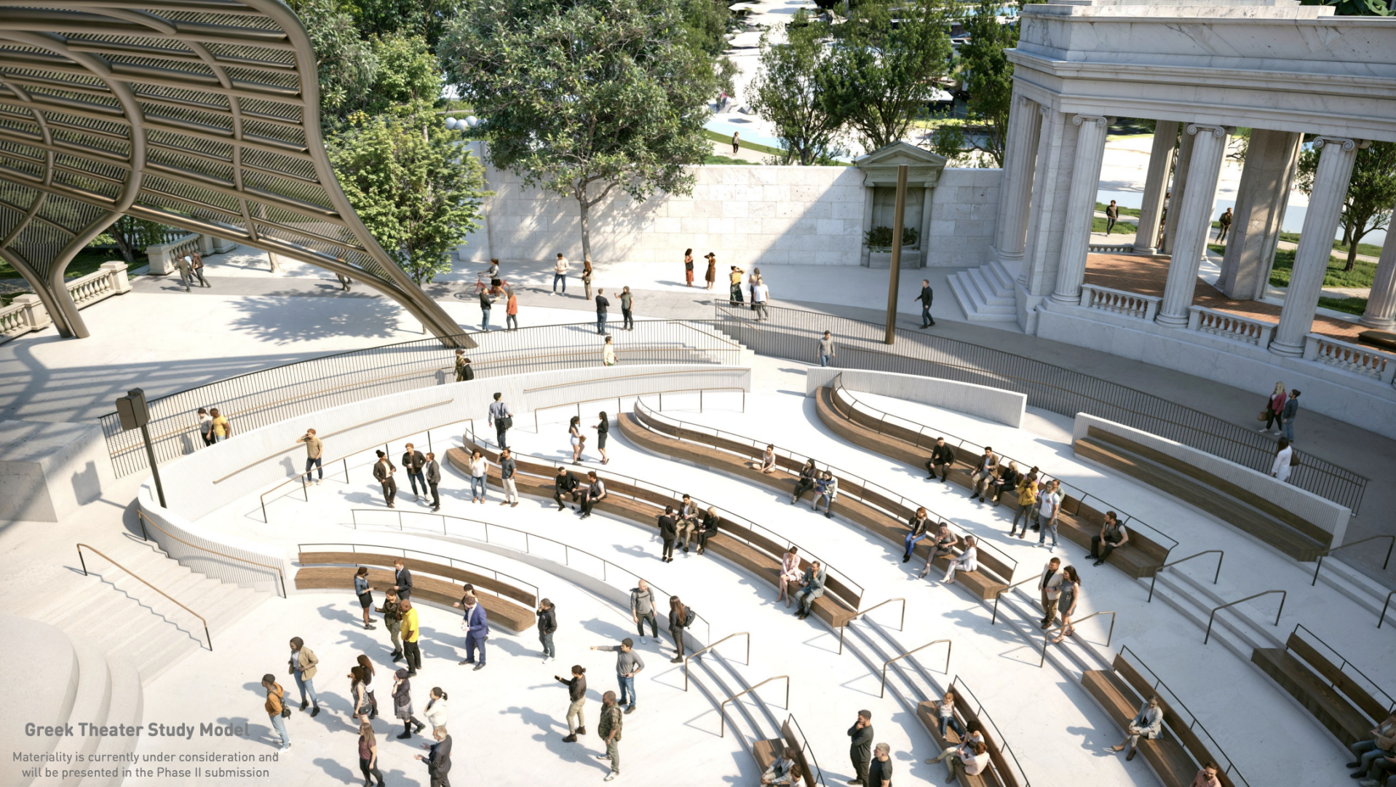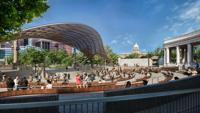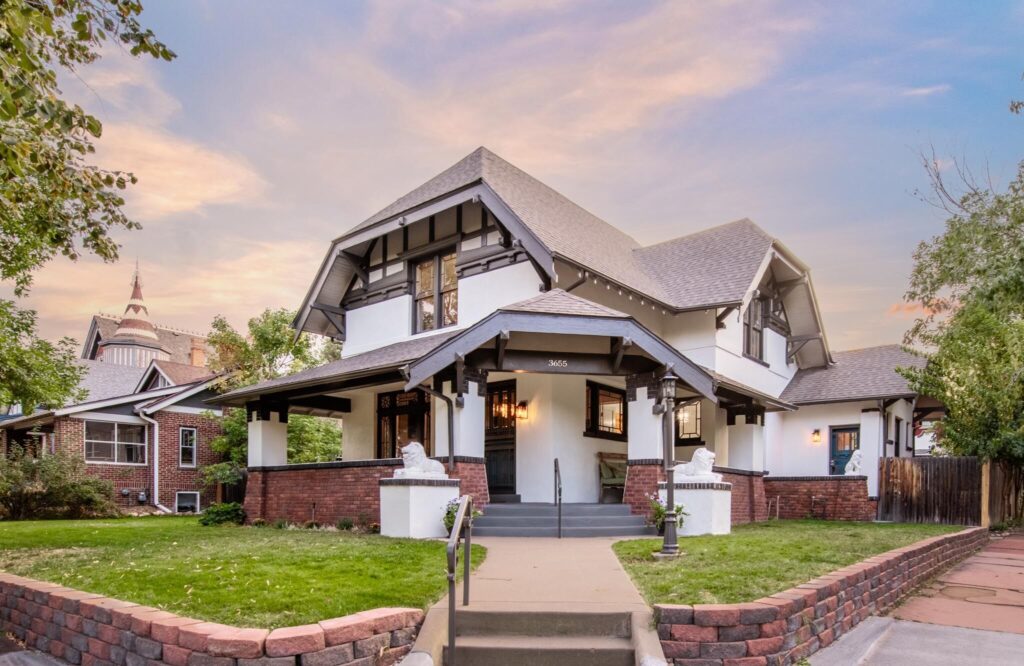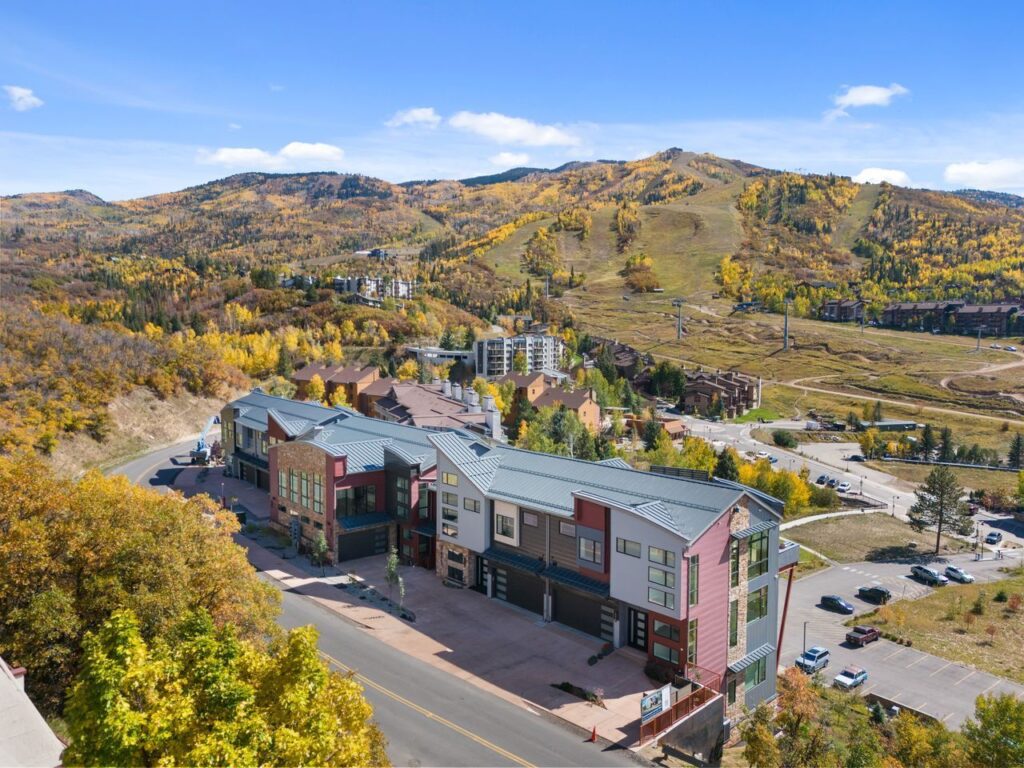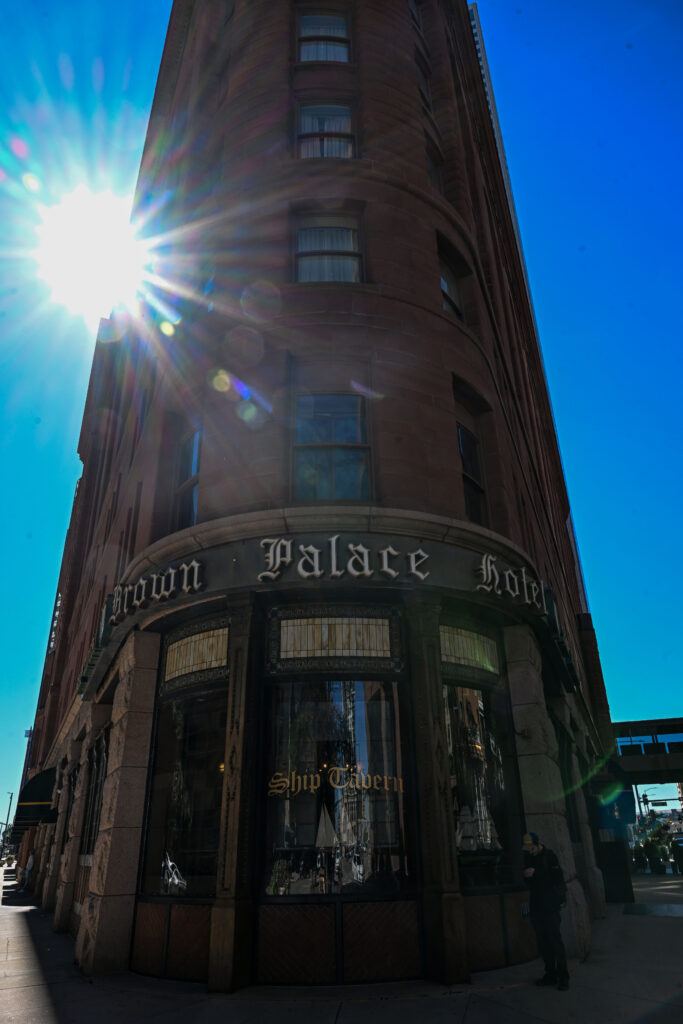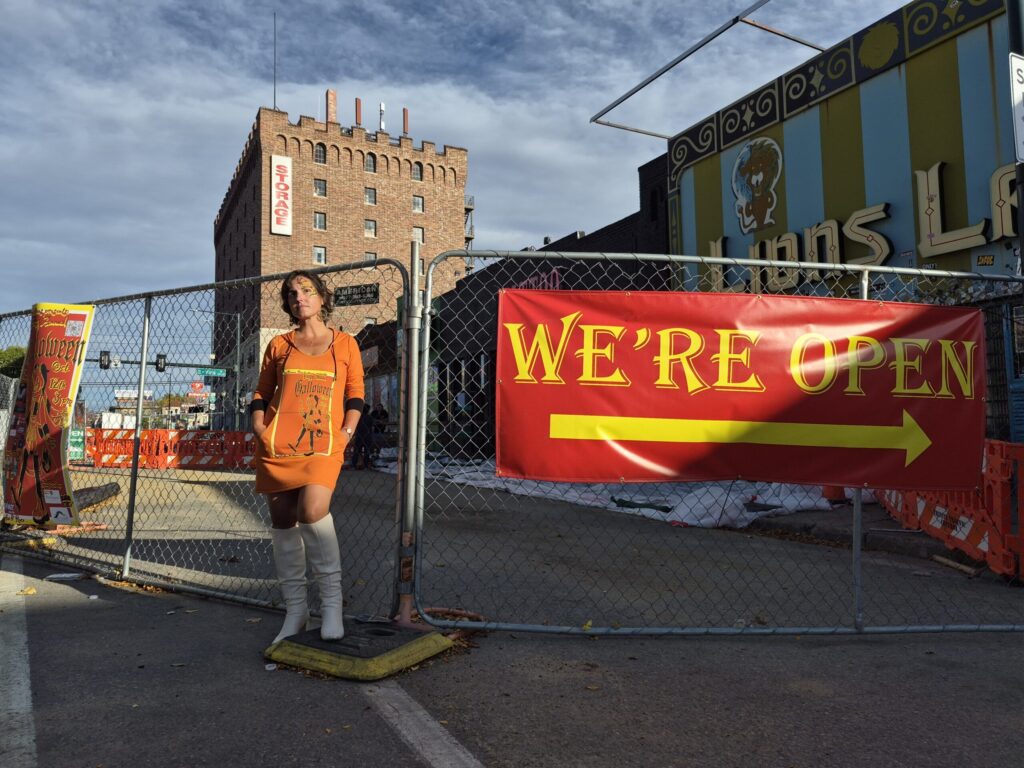Proposed changes to Civic Center Park’s Greek Theater move forward
What makes the Greek Theater significant to Denver’s famous Civic Center Park? Is its materials? Its architectural style? The way it faces? What events it attracts?
These questions were at the heart of discussions at Denver’s Landmark Preservation Commission meeting Tuesday that drew dozens of reactions from community leaders and experts split about whether or not to move forward on Denver’s first phase of revitalizing the park.
The Commission, after a few delays due to a lack of a quorum, overwhelmingly voted to approve the proposal from Denver Parks and Recreation and architects Studio Gang. Commissioner Graham Johnson was the only dissenting vote after Commissioner Rusty Brown flipped from his vote in November.
The subject is one of the largest public projects to go in front of the commission, which typically handle changes made to homes in historic districts.
Public comments lasted almost 90 minutes as the redesign brought mixed reactions among architects, historians and preservationists — with some worried it would cause irreparable damage to one of the park’s most significant structures.
Meanwhile, those in support argued it would help revitalize downtown and make the Greek Theater more functional for today’s needs.

A rendering of the proposed changes to the Greek Theater in Denver’s Civic Center Park designed by globally-renowned architectural firm Studio Gang.
Plans to turn it around 180 degrees
The architects, who also designed downtown’s new Populus Hotel, devised a plan to move the stage of the Greek Theater 180 degrees, build a modern canopy and create new accessible pathways and a pedestrian loop around the Central Promenade.
Civic Center Park has been modified several times since it was first built in the 1900s, but the current changes are the largest since it earned the highest designation in the U.S. as a National Historic Landmark in 2012.
It’s the only National Historic Landmark within Denver’s boundaries and one of the few complete examples of the City Beautiful movement inspired by the National Mall in Washington.
Supporters of the Greek Theater’s redesign credit Studio Gang’s “surgical” approach toward redesigning the monument to attract more events, make it more accessible and respect its history.
Their proposal would address issues the Greek Theater’s stage has had such as turning the audience away from the sun’s glare, requiring less cumbersome set-up for performers wanting to use the space and making it smaller to host more intimate events. It also proposes turning the current stage into a gateway to more easily invite people into the park.
Danté Finley, the director of the Agenda Theatre, told commission members the Greek Theater’s current design made it more difficult for the company’s Romeo and Juliet production at Civic Center Park where they had an actor with a disability.
“We had to readjust a lot of their entrances and exits,” Finley said.

Studio Gang’s removal plans for the Greek Theater rehabilitation project shown in a city presentation.
Disagreements on drawing the line for too much change on a historic landmark
Critics, meanwhile, said the changes are too much and accessibility features can be added without removing parts of the theater.
“This is a chainsaw, not a scalpel,” said Tom Simmons, co-founder of Front Range Research Associates — the group of architectural historians who helped nominate the park as a national landmark.
Simmons said that had this redesign happened before the park was put forward as a National Historic Landmark, the Greek Theater would have been considered as a non-contributing historical structure.
“Questions would have been raised over the eligibility of Civic Center as a whole,” Simmons said.
“Theaters are intentionally designed to have a front and a back,” Simmons said. “But what change could more negatively impact the design of a historic theater than gutting its interior, reorienting it 180 degrees and building new seating and a stage.”
Commissioner Johnson, who voted against it, compared the theater’s 180-degree change as drastic to turning Denver’s other historic National Historic Landmark around: Red Rocks.
“Turning the bowl turns your back on that history,” Johnson said.
The canopy is another point of tension as critics said it would distract from the Greek Theater’s colonnades and doesn’t match the neoclassical style seen throughout the park.
During public comments Thursday, Molly Rose Merkert, a University of Colorado Denver graduate student in the historical preservation program, spoke against the project saying the canopy looks like a “spaceship.”
“This alien structure will obstruct the continuity of the promenade, diminishing the power of the colonnades and destroying the intended entry procession of the Greek amphitheater,” she said.

FILE PHOTO: Workers prepare for the Denver Christkindlmarket, an authentic, German-style holiday market, in Civic Center Park on Tuesday, Nov. 19, 2024. (Stephen Swofford, Denver Gazette)
Preservation vs. activation
Denver Parks and Recreation said in a statement in November that it is excited about the new opportunities the rehabilitation will provide while restoring Civic Center as the heart of the city’s cultural and civic life for its “Civic Center Next 100” plan.
Tina Bishop, a founding partner of landscape architecture firm Mundus Bishop and author of the 2009 Civic Center Design Guidelines, said the bowl of the theater has already been heavily changed throughout its time.
“There’s a misconception that what you see in the bowl in particular today is the original historic bowl. And unfortunately, it’s not,” Bishop said. “It has been modified.”
Landmark Preservation Commissioner George Dennis said Civic Center Park shouldn’t be fossilized in amber. It’s an asset for the public to use.
For many of the commissioners who voted to move the upgrade plans forward, at the end it came down to whether or not the changes will keep Greek Theater used by people for the next 100 years.
Commissioner Emily Hazen explained that the Ancient Romans and Greeks would often adjust their theaters to improve acoustics and meet the needs of performers. And the proposal also allows for flexibility to use both sides of the theater, she said, even after the 180-degree reversal.
“It’s important that this stays a theater and not a monument,” Hazen said.






